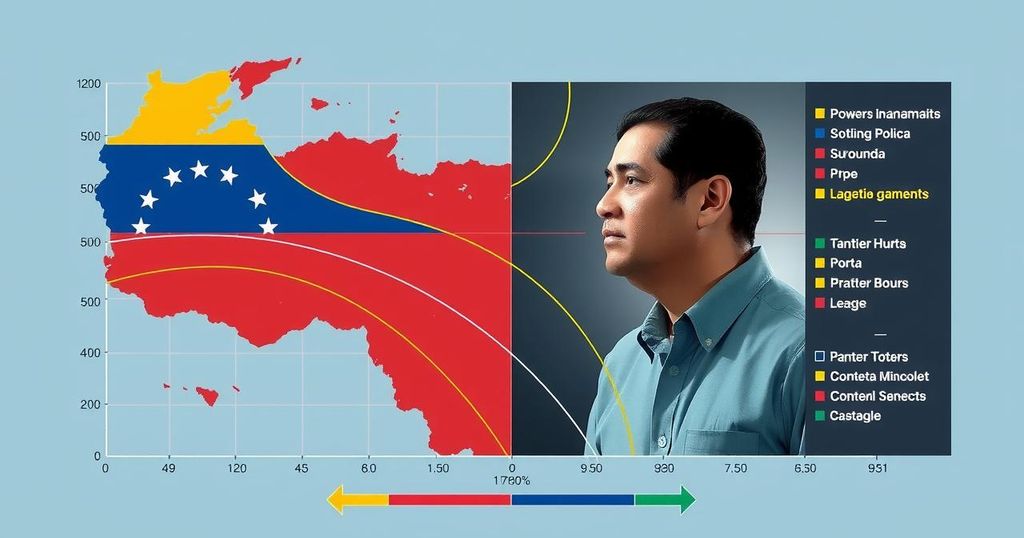What Maduro’s Third-Term Inauguration Means for Venezuela’s Future: Expert Insights

Nicolás Maduro has begun a controversial third term amid claims of a fraudulent election, facing unified regional opposition. Analysts highlight the need for coordinated international support for the Venezuelan opposition while critiquing U.S. sanctions as potentially insufficient in inciting regime change. The situation calls for a multifaceted response that balances pressure on Maduro with incentives for political transition.
On January 5, 2025, Nicolás Maduro was officially inaugurated for a third presidential term amidst allegations of election fraud and significant opposition from both regional leaders and the Venezuelan populace. The recent elections were marred by reports indicating that the opposition candidate, Edmundo González, had actually secured the majority of votes, a claim supported by collected vote tallies. In a bid to consolidate power, Maduro’s regime has resorted to increased repression of dissent, exemplified by the temporary detention of prominent opposition leader María Corina Machado. Meanwhile, the Biden administration has imposed new sanctions on Venezuelan officials while international leaders, including President-elect Donald Trump, offered their support for González, albeit with a complex diplomatic landscape. Experts from the Atlantic Council have weighed in on what this power grab signifies for Venezuela’s future, emphasizing the necessity for a collective opposition strategy and scrutinizing the adequacy of U.S. sanctions against Maduro’s regime.
Analysts note that a unified regional front against Maduro’s government is crucial; diverse Latin American leaders have expressed shared concerns regarding his authoritarian measures. Although Maduro appears to maintain a strong grip on power through a combination of military support and political repression, internal divisions within his own coalition could provide openings for change. The experts advocate for the U.S. to pursue a nuanced sanctions approach that balances pressure on individuals involved in the regime with broader strategies that include incentivizing political transitions. This multifaceted evaluation highlights the precarious nature of Maduro’s leadership and the potential pathways toward restoring democratic governance in Venezuela.
The backdrop of Nicolás Maduro’s third-term inauguration is steeped in controversy as his re-election in July 2024 is widely regarded as fraudulent, with allegations of tampering and vote suppression. The political landscape in Venezuela has been characterized by extreme polarization, with a fractured opposition struggling against a well-entrenched regime that employs intimidation and violence to suppress dissent. In the wake of intensifying sanctions from foreign powers, the dynamics within the region have shifted, prompting leaders across the political spectrum to unite in their condemnation of Maduro’s power consolidation. This situation poses significant challenges for Venezuelans advocating for democratic processes and raises questions about international engagement with the regime.
In summary, Maduro’s illegitimate assumption of a third presidential term signals a troubling continuation of authoritarianism in Venezuela, exacerbating an already fractured political climate. While the opposition may appear vulnerable, emerging unification efforts and international scrutiny present opportunities for a recalibration of strategies aimed at restoring democracy. The nuanced approach to sanctions suggested by experts calls for a delicate balance between firm pressure on the regime and support for the Venezuelan populace. Ultimately, the trajectory of Venezuela’s future hinges on coordinated efforts from both regional leaders and the international community to foster democratic principles while alleviating the burdens faced by ordinary citizens.
Original Source: www.atlanticcouncil.org








